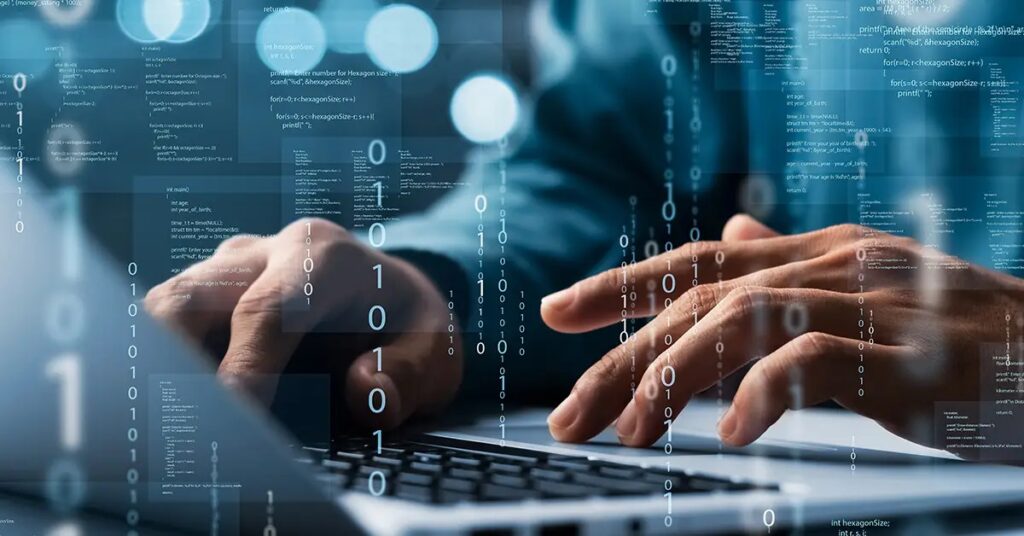
In the dynamic landscape of modern business, accounting has undergone a remarkable evolution propelled by technological advancements. No longer confined to mere ledgers and spreadsheets, the discipline has embraced a digital revolution, reshaping practices and processes from the ground up. From the automation of routine tasks to the integration of cutting-edge analytics and blockchain technology, the role of technology in accounting has become synonymous with efficiency, accuracy, and innovation. As we delve deeper into the digital evolution of accounting, it becomes clear that beyond ledgers lies a realm where collaboration, automation, and smart technologies converge to redefine the essence of financial stewardship.
Beyond Ledgers: Exploring the Digital Evolution of Accounting
In the realm of modern business, the role of technology in accounting practices has transcended traditional ledgers and spreadsheets, ushering in an era of digital transformation. From the advent of robotic process automation to the utilisation of cutting-edge accounting software, technology has revolutionised how financial data is managed, analysed, and reported. As businesses strive for greater efficiency, accuracy, and transparency, embracing technological advancements has become paramount in modern accounting practices.
Cloud Solutions and Collaboration Revolutionizing Financial Management
Cloud computing has emerged as a game-changer in accounting, offering unparalleled flexibility, scalability, and accessibility. With the advent of cloud-based accounting software, businesses can streamline their financial operations, collaborate seamlessly across teams and locations, and gain real-time insights into their financial performance. This shift towards cloud solutions enhances efficiency and ensures data security and compliance, empowering businesses to adapt to rapidly changing market dynamics easily.
From Excel to AI: Unleashing the Power of Automation in Accounting
Gone are the days of manual data entry and cumbersome spreadsheet calculations. The rise of automation technologies, powered by artificial intelligence and machine learning algorithms, has revolutionised accounting processes, enabling professionals to focus on strategic decision-making rather than repetitive tasks. Whether automating invoice processing, reconciling transactions, or generating financial reports, AI-driven solutions have significantly reduced errors, improved accuracy, and accelerated the pace of operations, thereby transforming the accounting landscape.
Smart Transactions: How Blockchain is Reshaping Accounting Principles
Blockchain technology has emerged as a disruptive force in accounting, offering unparalleled transparency, security, and immutability in financial transactions. By creating decentralised, tamper-proof ledgers, blockchain eliminates the need for intermediaries, reduces the fraud risk, and ensures financial data’s integrity, verifying transactions to tracking assets; the adoption of blockchain in accounting enhances trust among stakeholders and simplifies auditing processes, paving the way for more efficient and reliable financial management practices.
Analytics Unleashed: Navigating the Data-Driven Future of Accounting
In today’s data-driven economy, harnessing the power of analytics has become essential for driving business growth and innovation. With advanced analytics tools and techniques, accounting professionals can extract valuable insights from vast amounts of financial data, enabling them to make informed decisions, identify trends, and mitigate risks more effectively. Whether predicting future cash flows, optimising tax strategies, or detecting anomalies, analytics has become an indispensable tool for navigating the complexities of modern accounting practices, empowering businesses to thrive in an increasingly competitive landscape.
The role of technology in modern accounting practices cannot be overstated. Technology has revolutionised every aspect of financial management, from streamlining routine tasks to enabling strategic decision-making, ushering in a new era of efficiency, accuracy, and transparency. As businesses embrace digital transformation, staying abreast of the latest accounting technologies and trends will be key to maintaining a competitive edge in today’s dynamic marketplace.
FAQ’s
What is the role of technology in modern accounting?
Technology in modern accounting automates tasks, enhances data accuracy, enables real-time reporting, ensures compliance, and fosters strategic decision-making.
What are modern accounting practices?
Modern accounting practices encompass digital tools, automation, cloud-based solutions, data analytics, blockchain, and AI, improving efficiency, accuracy, and strategic decision-making.
What is the role of information technology in accounting?
Information technology in accounting streamlines processes enhances data accuracy, enables real-time reporting, ensures compliance, and fosters strategic decision-making.



